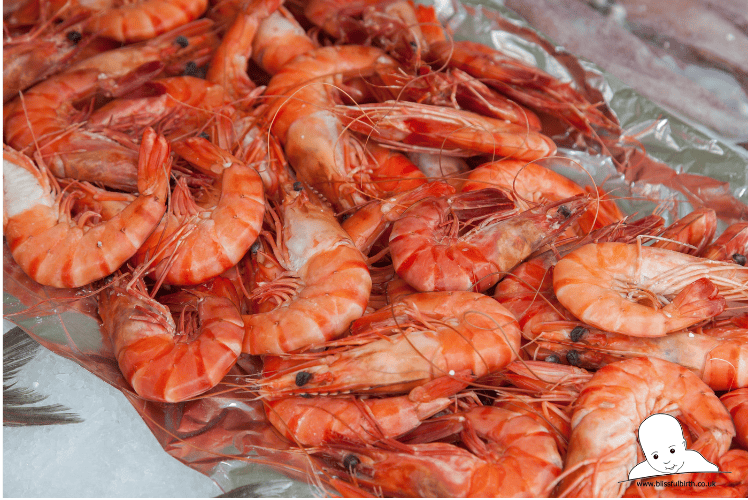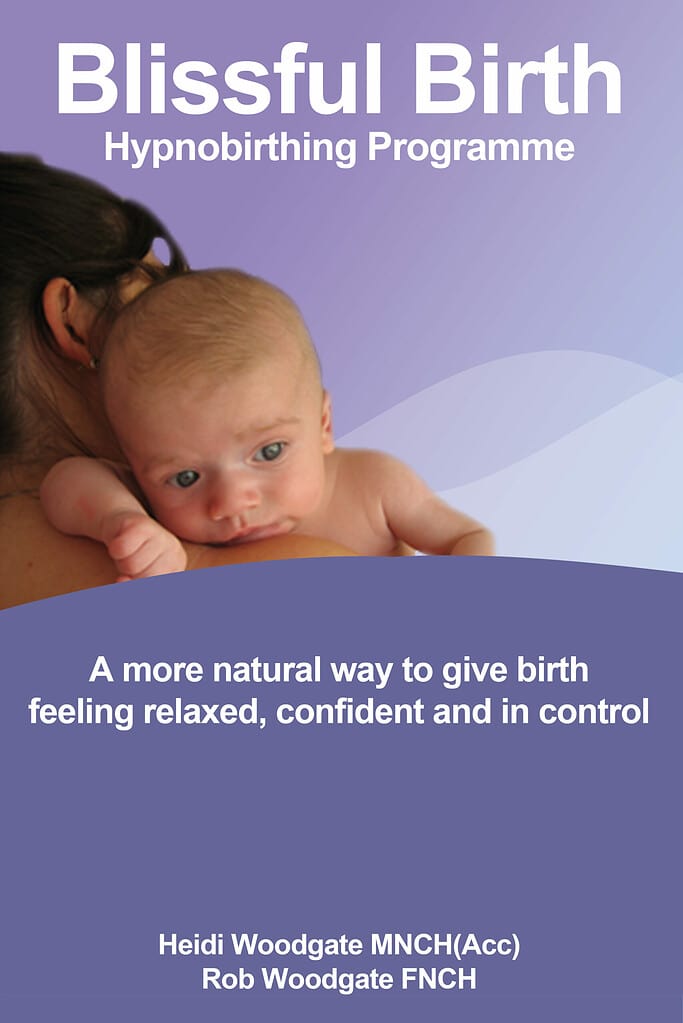During pregnancy, many women are cautious about their dietary choices, especially the safety of seafoods.
Shrimp is a delicious and nutritious food, but is it safe in pregnancy?
Dive into this comprehensive guide to discover the answer, understand the nutritional benefits, and make informed choices for you and your baby.

Table of Contents
Quick Answer
Yes, pregnant women can eat shrimp as long as it’s properly prepared. When cooked thoroughly, shrimp offers a rich source of protein and essential nutrients, making it a nutritious choice for both the mother and the developing baby.
Nutritional Benefits of Shrimp for Expecting Mothers
Incorporating shrimp into a balanced diet offers a plethora of benefits, ensuring expecting mothers receive vital nutrients.
Protein Content
Shrimp is an excellent source of lean protein, which is of paramount importance during pregnancy.
Protein not only supports the growth of fetal tissues, including the brain, but also aids in the development of breast and uterine tissues in expecting mothers.
Omega-3 Fatty Acids
Shrimp provides essential fatty acids, particularly EPA and DHA. These play a vital role in the neural development of the fetus, supporting brain health, eye development, and potentially reducing the risk of premature birth.
Low Fat and Caloric Content
While shrimp is nutrient-dense, it’s commendably low in calories and fat. This characteristic makes it an ideal choice for mothers keen on managing their weight during pregnancy without skimping on essential nutrients.
Vitamins and Minerals
Shrimp is a reservoir of various vitamins and minerals. It’s rich in selenium, an antioxidant that safeguards the mother’s and baby’s cells.
Additionally, the vitamin B12 in shrimp is pivotal for nerve functions and the formation of red blood cells.
Not to forget, shrimp is a source of iodine, crucial for thyroid function and fetal brain development.
Low in Mercury
A significant concern with seafood during pregnancy is mercury content. High mercury levels can be harmful to fetal development.
The good news is, shrimp falls under the category of seafood with minimal mercury, making it a safer choice for pregnant women.
Zinc and Iron Contributions
Shrimp provides essential minerals like zinc, which aids in DNA synthesis and enzyme production. For pregnant women, zinc is vital as it supports the baby’s cell growth and enhances the mother’s immune function.
While shrimp isn’t the richest source of iron, it does contribute to the daily intake, supporting increased blood volume and preventing anemia.
Incorporating shrimp into a balanced diet offers a plethora of benefits, ensuring expecting mothers receive vital nutrients while relishing a delectable meal.
Potential Risks of Seafood Consumption
While seafood offers numerous nutritional benefits, it’s essential to be informed about potential risks.
By making informed choices, expecting mothers can enjoy the benefits of seafood while minimizing potential hazards
Mercury Contamination
One of the most significant concerns regarding seafood consumption during pregnancy is the presence of mercury.
Mercury, a heavy metal, can accumulate in fish, especially those higher up in the food chain. Consuming high-mercury fish can lead to mercury poisoning, which can adversely affect fetal brain development and cognitive functions.
While shrimp is low in mercury, other seafood like swordfish, king mackerel, and shark have notably high levels and should be consumed with caution.
Harmful Bacteria and Viruses
Raw or undercooked seafood can harbor harmful bacteria and viruses, such as Listeria and norovirus.
Listeria, in particular, can lead to severe complications during pregnancy, including miscarriage, premature delivery, and infections in the newborn.
It’s therefore crucial to ensure that seafood is cooked thoroughly to kill any potential pathogens.
Environmental Pollutants
Apart from mercury, seafood can also contain other environmental pollutants like polychlorinated biphenyls (PCBs) and dioxins. These chemicals can accumulate in the body over time and may pose health risks.
While the levels in most seafood are typically low, it’s essential to be aware of potential sources of contamination and choose seafood from trusted suppliers.
Allergic Reactions
Some individuals may be allergic to certain types of seafood. Symptoms can range from mild hives or a stuffy nose to severe anaphylaxis, a potentially life-threatening condition that requires immediate medical attention.
If you have a known seafood allergy or experience any allergic reactions after consumption, it’s vital to avoid those specific seafood items during pregnancy.
Safely Preparing and Consuming Shrimp
While shrimp is a delicious and nutritious choice, especially for expecting mothers, it’s vital to handle and prepare it with care.
By following these guidelines, one can relish the taste of shrimp while ensuring safety for both the mother and the baby.
Choose Fresh Shrimp
The first step to safely enjoying shrimp is selecting fresh, high-quality produce. Fresh shrimp should have a clean, sea-like scent.
Avoid shrimp that smells of ammonia or has a sour odor, as these are signs of spoilage.
When purchasing frozen shrimp, ensure the packaging is intact, and there are no signs of freezer burn.
Proper Storage
Once purchased, shrimp should be stored in the coldest part of the refrigerator if they are to be consumed within a day.
For longer storage, it’s best to keep shrimp frozen.
Before cooking, frozen shrimp should be thawed in the refrigerator and not at room temperature to prevent bacterial growth.
Thorough Cleaning
Before cooking, shrimp should be thoroughly cleaned. This involves peeling the shrimp, deveining it (removing the black intestinal tract), and washing it under cold running water.
This not only improves the taste but also ensures any contaminants are removed.
Adequate Cooking
Raw shrimp carries a risk of bacterial contamination. To ensure safety, shrimp should be cooked until they turn pink and opaque, and the flesh feels firm to the touch.
The U.S. Food and Drug Administration recommends cooking shrimp to an internal temperature of 145°F (63°C)[1].
Avoid consuming raw or undercooked shrimp, especially during pregnancy.
Prevent Cross-Contamination
It’s essential to prevent cross-contamination in the kitchen. Use separate cutting boards and utensils for raw shrimp and other foods.
After handling raw shrimp, wash your hands, utensils, and surfaces with hot soapy water. This step is crucial to prevent the spread of harmful bacteria.
Mindful Consumption Outside Home
When dining out or ordering takeout, pregnant women should be cautious. Ensure that shrimp dishes are thoroughly cooked and avoid dishes that might contain raw or undercooked shrimp, such as certain sushi rolls or ceviche.
Monitor Expiry Dates
For packaged or frozen shrimp, always check the expiry date. Consuming shrimp past its expiry date increases the risk of foodborne illnesses.
Is it Safe for Pregnant Women to Eat Beef Jerky?
Is it safe for pregnant women to eat beef jerky? The consumption of eating beef jerky during pregnancy should be approached with caution. While beef jerky is a convenient and protein-rich snack, it may pose certain risks due to the potential presence of harmful bacteria like Listeria. Pregnant women should ensure they are consuming properly cooked or heated meat to minimize any potential health hazards.
Conclusion
Pregnancy is a time of joy, anticipation, and, often, a lot of questions. When it comes to diet, it’s essential to make informed choices that benefit both the mother and the baby.
Shrimp, with its myriad of nutritional benefits and low mercury content, is a delightful and safe addition to a pregnant woman’s diet, if properly prepared.
So, the next time you’re at a seafood restaurant or preparing a meal at home, you can confidently indulge in that shrimp dish, knowing it’s a healthy choice for you and your little one.




